Do you constantly find yourself holding text at arm’s length, or squinting to read a menu? You’re experiencing presbyopia, a natural age-related vision change that glasses with readers are expertly designed to solve, restoring your crystal-clear near vision for everyday tasks. This comprehensive guide will help you understand how these essential glasses with readers, alongside other vital eyewear solutions like sunglasses with prescription, can provide the clarity and comfort you need, ensuring every detail is sharp and accessible again.
Understanding Reading Glasses: Your Vision’s New Best Friend
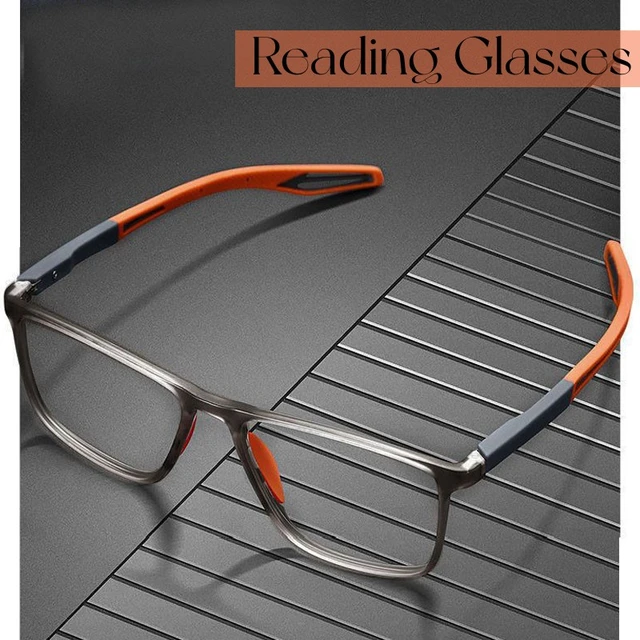
Experiencing fuzzy text or needing to hold your phone at arm’s length? You’re not alone. Many people reach a point where their near vision isn’t as sharp as it once was. This is where glasses with readers become invaluable, transforming daily tasks from reading a menu to scrolling through emails. Let’s delve into why these specialized eyeglasses are often the solution you need.
Understanding Presbyopia: The “Arms Too Short” Phenomenon
That familiar feeling of your arms not being long enough to see your book or phone clearly? That’s the classic symptom of presbyopia, a natural, age-related condition affecting your eyes’ ability to focus on close objects. It’s a universal vision change, not a disease, and it typically begins to manifest in your early to mid-40s. These common challenges are precisely why many turn to glasses with readers for effective magnification.
When Age Calls for Magnification: Typically 40-45 Years
In 2025, optometrists confirm that presbyopia is a normal part of aging, usually starting between 40 and 45 years of age. Your eye’s natural lens, which helps you focus, gradually loses its flexibility over time. This makes it harder for your eyes to adjust and clearly see things up close. This is when individuals often realize they need a little extra help, prompting the search for reliable reading eyewear or reading spectacles.
This shift isn’t sudden; it’s a gradual process. You might first notice it in low light conditions or when your eyes are tired. Eventually, even everyday reading tasks become a strain without the right assistance. High-quality magnifying lenses provide the clarity you’re missing, making everything from fine print to crafting projects visible again.
Nearsightedness and Unique Reading Needs
A common misconception is that if you’re nearsighted (myopic), you won’t need reading glasses. However, this isn’t always the case. While some myopic individuals find they can simply remove their distance glasses to read up close, many others will still develop presbyopia. For these individuals, a comprehensive solution like glasses with readers that incorporate both distance and near correction, such as bifocals or progressive lenses, becomes essential.
For instance, a nearsighted person might struggle to read a book while wearing their distance prescription, but struggle equally without any correction. This is where options for combining prescriptions within a single frame become vital. Selecting the right frame for your unique visual needs, whether for a complex prescription or specific style, is crucial. To find a diverse selection of choices and understand how to pick out the perfect pair, you might want to explore guides on buying lens frames online, which can greatly assist in making an informed decision about your eyewear.
Decoding Types of Reading Glasses for Every Lifestyle
Navigating the world of glasses with readers can seem complex, but understanding the different types available helps in finding your perfect match. Whether you need them for occasional use or all-day wear, there’s a design tailored to your specific lifestyle and visual demands. From simple magnifying glasses to sophisticated multi-focus designs, the right pair can significantly enhance your daily clarity.
Single-Vision vs. Multifocal Readers: Finding Your Focus
The primary distinction in reading glasses lies between single-vision and multifocal options. Single-vision readers, as their name suggests, offer one magnification power across the entire lens. These are ideal for dedicated close-up tasks like reading a book, using a computer, or doing detailed hobbies. They are straightforward and effective for singular focus needs.
Multifocal readers, on the other hand, provide multiple focal points within a single lens, allowing for seamless transitions between different distances. This category includes bifocals, which have a distinct line separating distance and near vision, and progressive lenses, which offer a smooth, invisible transition between multiple magnifications (distance, intermediate, and near). Progressive reader glasses are particularly popular for those who don’t want to constantly switch between different pairs of eyeglasses. They are a true all-in-one solution for continuous visual clarity throughout the day. If you’re looking for versatile options that combine different magnifications to suit your dynamic vision needs, you can browse a wide array of multifocal reading glasses that offer this seamless experience.
Blue Light Filtering: Unpacking the Hype and Benefits for Eye Strain
In our increasingly digital 2025 world, blue light filtering has become a hot topic in eyewear. Blue light, emitted by screens like phones, tablets, and computers, is often cited as a cause of digital eye strain, fatigue, and disrupted sleep patterns. Glasses with readers that incorporate blue light filtering technology aim to mitigate these effects by blocking or absorbing a portion of this potentially harmful light.
While research on long-term effects is ongoing, many users report significant benefits, including reduced eye fatigue, fewer headaches, and improved comfort during extended screen time. Opticians often recommend blue light filter lenses for individuals who spend considerable time in front of digital devices, even if they don’t require vision correction. For those who do need magnification eyewear for reading or screen work, integrating blue light protection offers a dual benefit, ensuring both clarity and enhanced eye comfort. If digital eye strain is a concern for you, exploring glasses with readers with this protective feature could significantly improve your daily comfort. You can find many options designed to reduce digital eye strain by visiting blue light filtering readers.
Choosing Your Ideal Glasses with Readers: A Smart Buyer’s Playbook
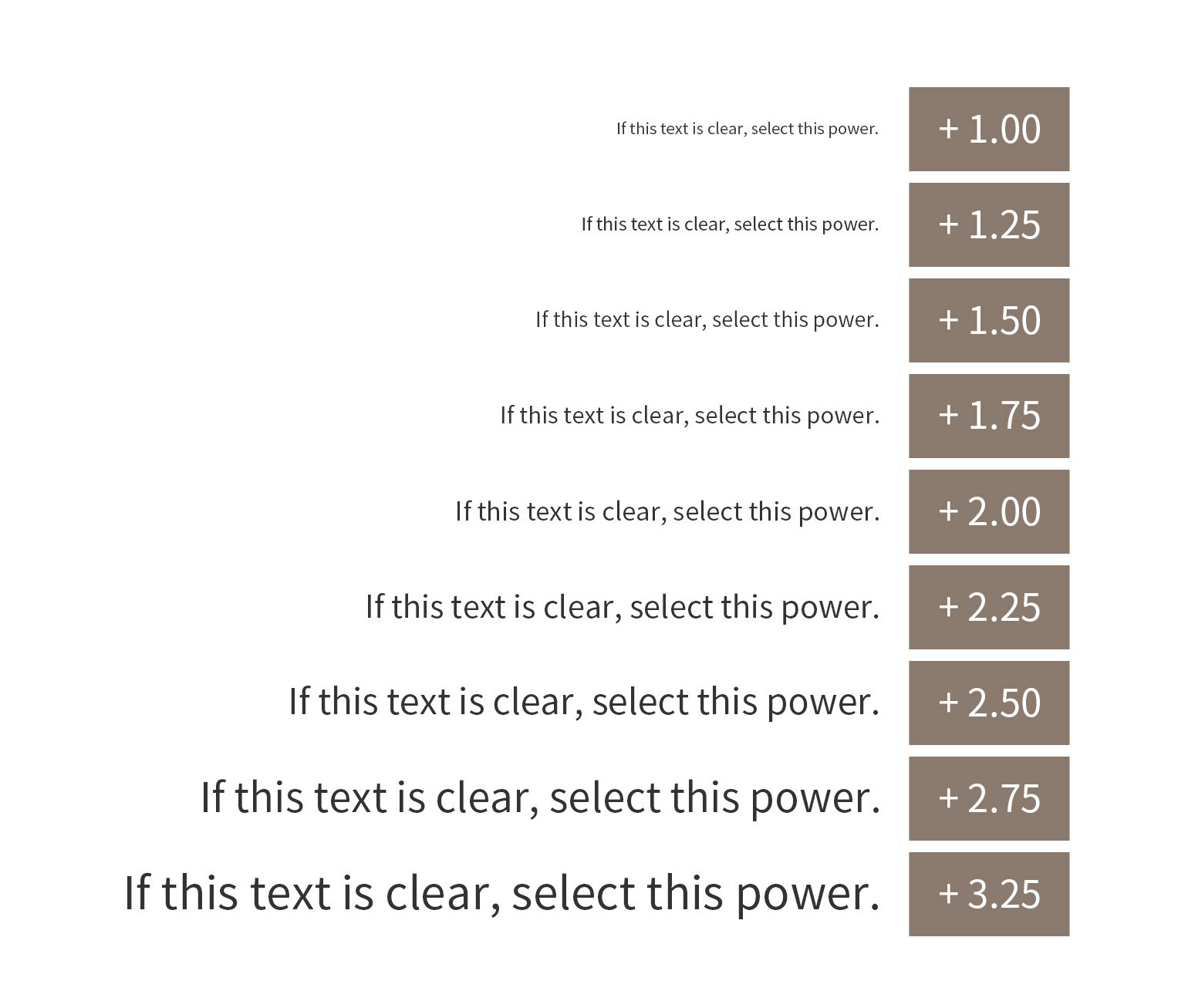
Selecting the right pair of glasses with readers isn’t just about finding something that helps you see; it’s about optimizing your daily comfort and productivity. With so many options available, understanding the nuances of magnification strength and the purchasing process is key. This guide will walk you through making an informed decision, ensuring your new eyewear truly enhances your vision.
Finding Your Perfect Magnification Strength
One of the most crucial steps in acquiring reading glasses is determining the correct magnification strength. This strength is measured in diopters, and choosing the wrong power can lead to eye strain, headaches, and ultimately, a less effective solution for your near vision needs. Getting this right ensures clarity and comfort.
Diopter Readings Explained: Increments and Best Practices
Diopters (D) are the standard unit of measurement for the optical power of a lens. For over-the-counter magnifying eyewear, strengths typically range from +0.50 D to +4.00 D, increasing in increments of +0.25 D. For example, you might find +1.00, +1.25, +1.50, and so on. This wide range allows individuals to find a specific power that precisely matches their level of presbyopia.
When trying to find your ideal reading power, a good practice is to start with the lowest diopter that allows you to comfortably read fine print at a normal distance (about 14-16 inches away). If you find yourself straining or needing to hold material closer than comfortable, try the next higher increment. It’s often helpful to test several strengths, as one power might feel perfect for computer use, while another is better suited for very small print. Remember, the goal is effortless reading without discomfort.
Prescription vs. Non-Prescription Magnifiers: When to Consult an Eye Care Professional
The decision between over-the-counter readers and custom-made prescription lenses hinges on your individual vision needs and overall eye health. Non-prescription magnifying glasses are a convenient and affordable option for those with simple presbyopia, where both eyes require the same magnification and there are no other complex vision issues like astigmatism or significant differences in prescription between the eyes. They are readily available at pharmacies, department stores, and online eyewear retailers.
However, if you experience persistent eye strain, headaches, or if off-the-shelf readers don’t seem to provide clear, comfortable vision, it’s a clear signal to consult an eye care professional. An optometrist or ophthalmologist can conduct a comprehensive eye exam in 2025 to determine your precise vision correction needs. They can detect underlying conditions, measure for astigmatism, and provide a custom prescription that ensures optimal clarity and eye health. Furthermore, a professional can also advise on other eyewear solutions, perhaps even recommending a visit to a sunglasses store if your lifestyle demands it, ensuring all your visual requirements are met. Your eyes are unique, and sometimes, a tailored solution is the only path to truly clear and comfortable vision.
Navigating the Online Buying Guide for Eyewear
The digital marketplace has revolutionized how we purchase glasses with readers, offering unparalleled convenience and a vast selection. However, a smart buyer’s approach is essential to ensure you receive a quality product that meets your expectations. Understanding what to look for can transform your online shopping experience.
Key Factors for a Seamless Online Purchase: User Reviews and Company Reputation
When venturing into online eyewear retailers, two critical factors stand out: genuine user reviews and the company's reputation. Before making a purchase, meticulously scour customer testimonials. Look beyond just the star ratings; read detailed feedback regarding product quality, accuracy of diopter strength, customer service responsiveness, and return policies. Recurring positive comments about durability or clarity are strong indicators of a reliable product. Conversely, consistent complaints about poor fit or incorrect magnification should be a red flag.
The online store's reputation is equally vital. Opt for established digital storefronts with a proven track record. Check their “About Us” section, look for clear contact information, and review their shipping and return policies thoroughly. Many reputable online providers offer virtual try-on tools, allowing you to see how different reading spectacle frames might look on your face, significantly enhancing your confidence in the purchase. A company that prioritizes transparent communication and offers a strong guarantee typically indicates a commitment to customer satisfaction.
Quality and Regulation Concerns: Diopter Variation and FDA Guidelines
While over-the-counter readers offer convenience, it’s important to be aware of quality control issues, particularly regarding diopter variation. Some lower-quality reading spectacles may have slight inconsistencies in magnification power between the two lenses, or the stated power might not precisely match the actual power. This can lead to subtle eye strain or discomfort, even if the general strength seems correct. Always prioritize eyewear brands that explicitly state their commitment to precision and quality standards.
In the United States, while prescription eyeglasses are regulated by the FDA as medical devices, non-prescription reading glasses (ready-made readers) are generally not subject to the same strict regulations. However, reputable manufacturers adhere to certain product standards to ensure safety and performance. Look for products that clearly label the diopter strength and provide details about the lens material and frame construction. A transparent brand will often include certifications or adherence to industry benchmarks. While online purchasing provides access to a vast array of glasses with readers, understanding these quality and regulatory considerations empowers you to make a discerning choice, ensuring your investment truly enhances your vision. To explore a wide variety of glasses with readers that prioritize both style and precise magnification, you can visit glasses with readers for options that combine convenience with reliable performance.
The Silent Epidemic: Understanding Presbyopia and Its Global Reach
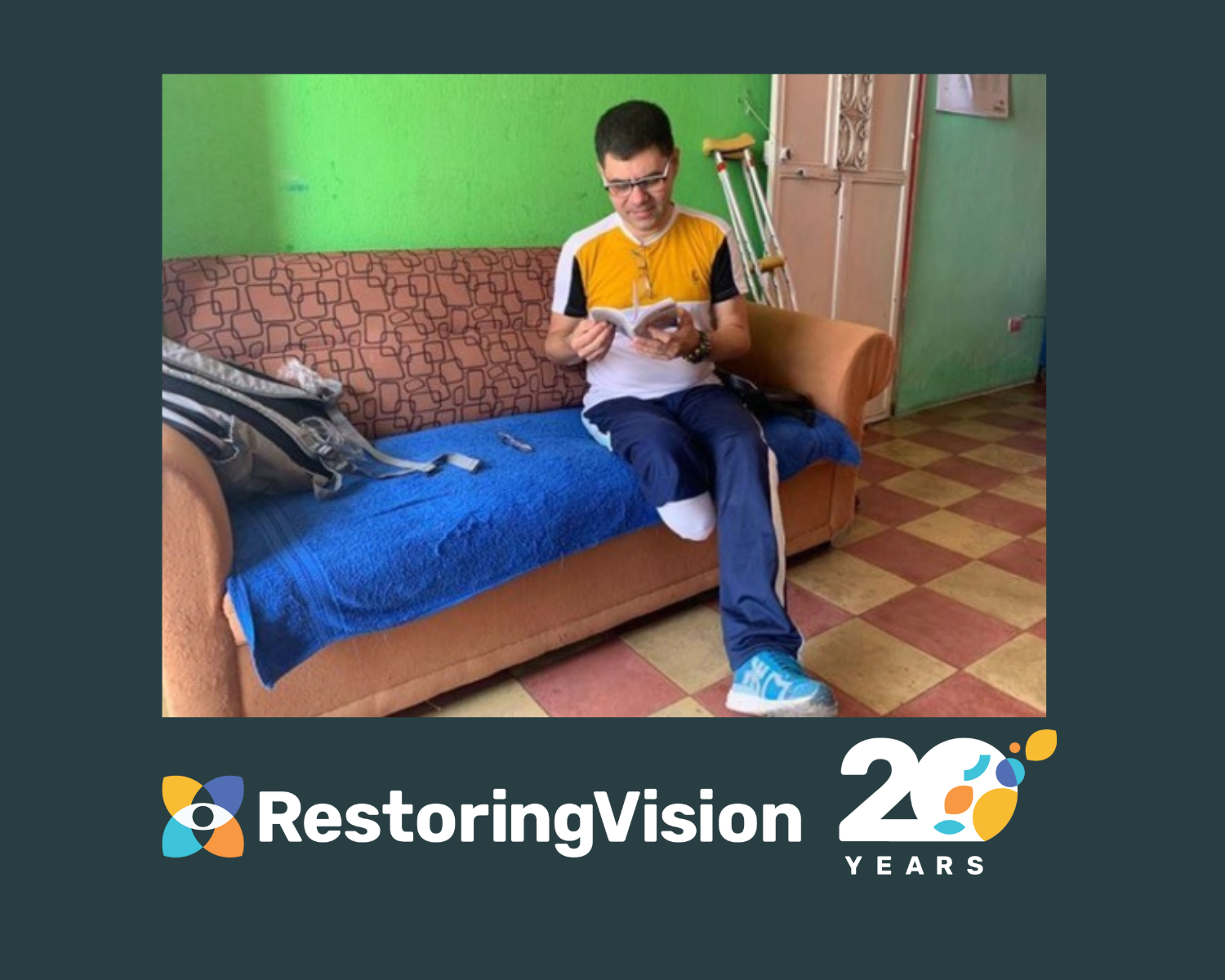
The subtle changes in our vision often begin unnoticed, a slight blur when reading a menu, a need to hold our phone further away. This isn’t just a sign of aging; it’s the onset of presbyopia, a universal condition affecting billions worldwide. Understanding this pervasive near vision loss is the first step towards addressing a profound global health challenge.
The Universal Reality of Age-Related Near Vision Loss
As we advance through life, our bodies naturally evolve. One of the most widespread and inevitable changes affects our eyes, specifically our ability to focus on nearby objects. This condition, known as presbyopia, is a testament to the natural aging process of the eye’s lens. It’s not a disease, but rather a normal, physiological change that impacts nearly everyone over a certain age.
What are Reading Glasses For: A Simple Solution to a Complex Problem
At its core, presbyopia results from the hardening of the eye’s natural lens and the weakening of the muscles surrounding it. This diminishes the eye’s flexibility, making it difficult to adjust focus from distant to near objects. This is precisely where reading glasses come into play. They are specially designed magnifying eyewear that provides the necessary optical power to compensate for the eye’s reduced ability to focus up close. For millions, glasses with readers offer a straightforward, effective way to regain clarity for tasks like reading, writing, and intricate craftwork. They are not merely an accessory but a vital tool for maintaining independence and quality of life.
Presbyopia Symptoms and Treatment: When Near Vision Fades
The symptoms of presbyopia typically emerge in our early to mid-40s, though onset can vary. Common indicators include eyestrain or headaches after reading, a tendency to hold reading material at arm’s length, and difficulty seeing small print in low light. You might find yourself squinting or needing brighter illumination to perform tasks that once seemed effortless. These are clear signals that your near vision is fading.
While presbyopia is irreversible, its symptoms are highly treatable. The most common and accessible solution is magnifying spectacles – what we colloquially refer to as reading glasses. These vision aids effectively correct the focusing issues by adding optical power for near tasks. For many, a simple pair of over-the-counter readers provides immediate relief and restores clear vision for close work. In more complex cases, or for individuals with other vision issues like astigmatism, prescription reading eyewear or multifocal lenses (like bifocals or progressives) may be recommended by an eye care professional in 2025. The aim is always to ensure comfortable, clear near vision and prevent unnecessary eye strain.
The Staggering Scale of Unaddressed Vision Impairment
While presbyopia is a personal challenge, its global impact represents a monumental public health crisis. Far from being a minor inconvenience, unaddressed vision impairment due to a lack of reading glasses has far-reaching consequences for individuals, communities, and economies worldwide. It highlights a critical disparity in access to basic vision correction.
Global Vision Crisis Statistics: More Than Just Blurry Text
The numbers paint a stark picture: The global vision crisis is far more expansive than many realize. It’s not just about a bit of blurry text on a page; it’s about forfeited opportunities, reduced productivity, and diminished quality of life. Consider these impactful statistics from 2025:
- 510 million people globally have unaddressed
vision losssolvable with simplereading glasses. This staggering figure exceeds the combined populations of the United States, Mexico, and Canada. Imagine the sheer volume of individuals whose daily lives are unnecessarily hampered, simply because they lack access to basicmagnifying eyewear. - Up to 800 million people worldwide need
spectaclesfor close work but lack them. This broader statistic encompasses those who could significantly benefit fromvision correctionbut do not have it, leading to a silent, pervasiveimpairment.
These figures underscore a profound global health disparity. For these hundreds of millions, the inability to clearly see up close means difficulty performing daily tasks, reduced educational opportunities, and hindered economic participation. It affects everyone from students struggling with textbooks to artisans unable to perform intricate work, and even grandmothers unable to read stories to their grandchildren. The simple solution of glasses with readers could unlock immense human potential. To explore a wide variety of glasses with readers that can help address this global need by providing clear and comfortable near vision, you can visit glasses with readers for options designed to meet diverse visual requirements.
The Economic and Social Burden of Poor Vision

While the scale of unaddressed vision impairment is staggering, its consequences extend far beyond individual discomfort. It exerts a profound economic and social burden globally, impacting productivity, educational attainment, and overall quality of life. This silent crisis underscores a critical need for accessible vision correction.
Productivity Drain: The Invisible Cost of Blurred Vision
The subtle blurring of near vision, often dismissed as a minor nuisance, collectively drains billions from the global economy. This productivity drain represents an invisible yet immense cost, largely attributable to unaddressed presbyopia. It’s a fundamental challenge to workforce efficiency and economic growth.
Economic Impact of Poor Vision: Billions Lost Annually
The financial repercussions of poor vision are staggering. Current estimates from 2025 reveal an annual economic loss ranging from an estimated $410 billion to $411 billion worldwide due to unaddressed vision impairment. A significant portion of this immense financial drain is directly linked to presbyopia, a condition often overlooked in broader economic discussions.
When workers struggle with blurred vision, their efficiency plummets. They make more errors, take longer to complete tasks, and may even be forced to withdraw from the workforce prematurely. This pervasive visual impairment reduces overall economic output and stifles innovation, creating a ripple effect across industries and nations. It’s a stark reminder that investing in basic vision correction is not just a health initiative but a critical economic strategy.
Benefits of Clear Vision for Productivity: A Game-Changer for Workers
Conversely, providing simple vision solutions like glasses with readers can be a significant game-changer for worker productivity. Studies unequivocally demonstrate the transformative benefits of clear vision for productivity. For employees whose roles demand precise near-vision work, such as data entry, intricate manufacturing, or even administrative tasks involving document review, the provision of appropriate optical aids can lead to remarkable productivity increases of up to 32%.
Imagine the cumulative effect of hundreds of millions of workers regaining their full visual acuity for close-up tasks. This enhanced worker efficiency translates directly into higher output, fewer errors, and improved job satisfaction. It empowers individuals to perform at their best, contributing meaningfully to their workplaces and the broader economy, transforming a potential economic liability into a significant competitive advantage.
Impact on Daily Life and Quality of Life
Beyond the measurable economic costs, unaddressed presbyopia profoundly impacts the daily life and quality of life for individuals. The inability to see clearly up close erodes personal independence and diminishes the richness of everyday experiences.
Why are Reading Glasses Needed: Hindrance to Fundamental Tasks
The question of why are reading glasses needed becomes acutely clear when one considers the multitude of fundamental tasks that become challenging or impossible without them. Uncorrected presbyopia acts as a pervasive hindrance, making formerly effortless activities frustrating and exhausting. Simple acts like reading a book, deciphering labels on groceries, or engaging with digital devices (smartphones, tablets, computers) become a constant struggle.
For those involved in precision work – be it tailoring, watchmaking, or intricate crafts – fuzzy near vision renders their skills unusable, threatening livelihoods. Even more intimately, the ability to assist children with studying, read bedtime stories to grandchildren, or simply manage personal finances can be severely compromised. This pervasive visual impairment limits participation in hobbies, social activities, and even basic self-care, significantly reducing visual independence and overall well-being.
Visual Independence Solutions: Restoring Dignity and Opportunity
Thankfully, readily available visual independence solutions exist, offering a direct path to restoring dignity and opportunity for millions. Glasses with readers stand as the most common, accessible, and immediate remedy for presbyopia.
These magnifying spectacles don’t just correct vision; they unlock potential. They empower individuals to resume reading, engage with technology, continue their work, and fully participate in family life. For many, simply acquiring a pair of reading glasses means reclaiming lost capabilities and renewing a sense of self-sufficiency. For those seeking comprehensive vision correction or specific prescriptions, understanding how to purchase prescription glasses online provides an unparalleled level of convenience and access to tailored solutions, ensuring everyone can find the perfect optical aid to meet their unique needs and truly restore clear vision.
The impact of gaining visual clarity is immeasurable: an elderly person can once again read letters from loved ones, an artisan can continue their craft, and a student can pursue their education without strain. Providing these essential vision aids is a powerful step towards building more inclusive and productive societies, ensuring that age-related near vision loss does not become a barrier to a fulfilling life. To find a wide array of glasses with readers designed to offer comfortable and effective near vision correction for every lifestyle and need, visit glasses with readers and discover how easy it is to regain visual independence.
The Access Divide: Why Essential Glasses with Readers Remain Out of Reach
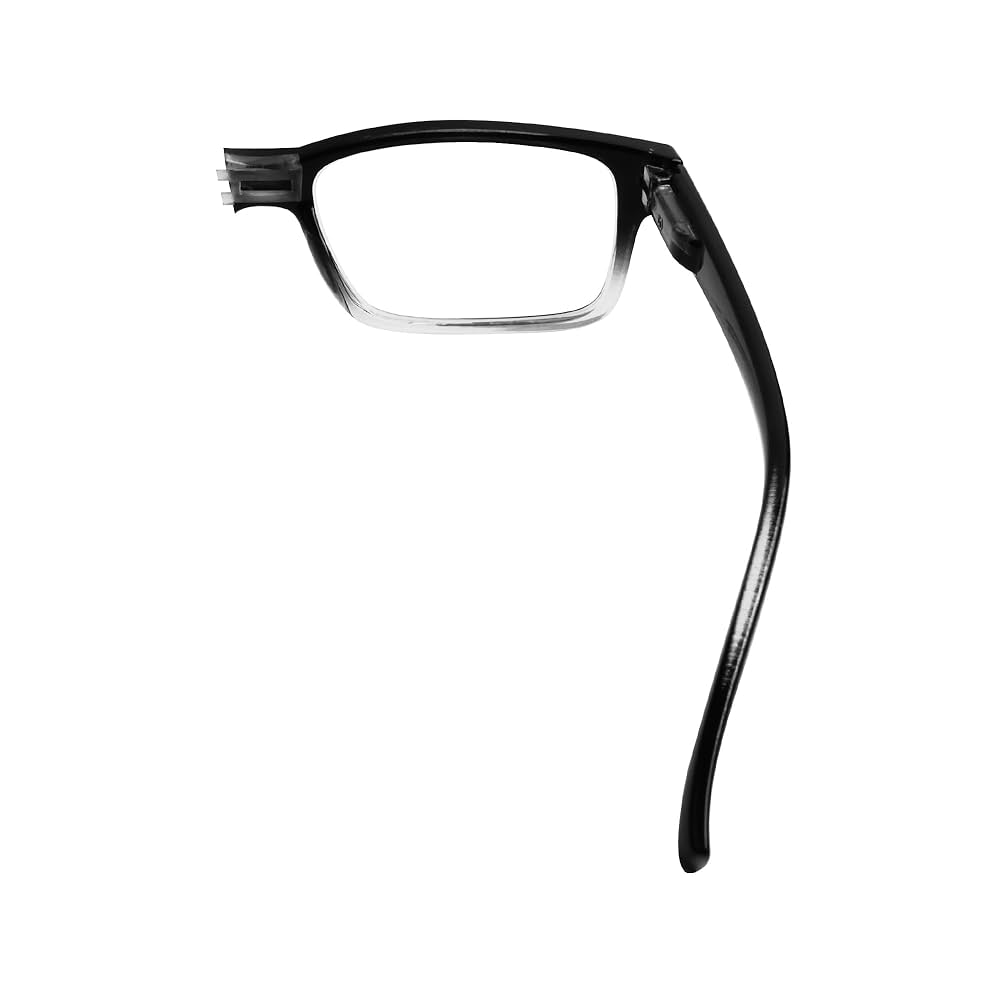
While the transformative power of glasses with readers is clear, a staggering number of people globally still lack access to this fundamental vision correction. This is not merely an oversight; it’s a complex access divide perpetuated by systemic barriers, economic realities, and regulatory hurdles that prevent millions from regaining their visual independence.
Barriers to Eye Care Access in Low-Income Countries
The challenge of providing vision solutions like reading glasses is particularly acute in low and middle-income countries. Here, the infrastructure and human resources necessary for effective eye care access are often critically insufficient, leaving vast populations underserved.
Eye Care Access Challenges: A Shortage of Expertise and Infrastructure
One of the most significant eye care access challenges is the severe shortage of expertise and infrastructure. In many low-income nations, there are simply not enough trained eye doctors, optometrists, or ophthalmic nurses to meet the immense demand. This scarcity extends to essential equipment and clinical facilities, making even basic eye examinations and prescriptions for corrective lenses incredibly difficult to obtain, especially in rural or remote areas. Without adequate professional oversight, identifying and addressing conditions like presbyopia becomes a luxury rather than a standard part of public health.
Public Health Initiatives for Presbyopia: The Need for Widespread Screening
Despite the widespread prevalence of presbyopia, public health initiatives specifically targeting this age-related vision impairment are often lacking. There is a profound need for widespread screening programs that can identify individuals suffering from blurred near vision and direct them towards appropriate optical aids. Without proactive community-based vision screenings, millions remain unaware that their declining visual acuity is easily correctable with simple glasses with readers, thus perpetuating the cycle of unaddressed vision impairment and its associated economic and social burdens.
The High Cost and Lack of Market for Reading Glasses
Even when awareness exists, the economic realities in many parts of the world present formidable obstacles. The perceived high cost and a fundamental lack of market prevent reading glasses from reaching those who need them most.
Affordable Eyeglasses for Developing Countries: When $20 is Too Much
The concept of affordable eyeglasses for developing countries is often a stark paradox. Consider this: in parts of Mexico, a pair of reading glasses can cost around $20 USD. While this might seem minimal in Western economies, it represents a substantial financial burden when the average monthly salary is approximately $280 USD. For many, allocating nearly 7% of their monthly income to corrective lenses is simply not feasible, prioritizing food, shelter, or other immediate necessities. This highlights why even a modest price can be prohibitive, effectively rendering glasses with readers an inaccessible luxury for millions experiencing near vision loss.
Market Solutions for Reading Glasses: Bridging Demand and Supply Gaps
The global challenge for reading glasses is fundamentally a market failure. The problem stems from a pervasive lack of demand and supply that prevents a functioning market from emerging in the areas of greatest need. On the demand side, limited awareness and perceived cost deter purchases. On the supply side, the absence of robust distribution channels, local manufacturing, and sustainable business models means affordable eyeglasses simply aren’t available where required. Bridging these demand and supply gaps requires innovative market solutions for reading glasses, often involving partnerships between non-profits, social enterprises, and local communities to ensure optical aids can reach and empower individuals. To explore a diverse range of glasses with readers that combine quality, style, and essential near vision correction, providing a vital step towards solving this access challenge for many, visit glasses with readers and discover solutions tailored to modern lifestyles.
Regulatory Hurdles and Import Challenges
Beyond economic factors, bureaucratic and governmental policies often inadvertently stifle the distribution of essential corrective lenses. These regulatory hurdles and import challenges add layers of complexity and cost, making glasses with readers even harder to obtain.
Importance of Corrective Lenses: Navigating Tariffs and Restrictions
The importance of corrective lenses for productivity and quality of life is undeniable, yet their journey to those in need is frequently complicated by national policies. Some countries classify imported glasses with readers as luxury goods, subjecting them to significant tariffs or import taxes. This designation artificially inflates their price, pushing them further out of reach for low-income populations. Furthermore, complex import restrictions, stringent medical device regulations, and even rules restricting the marketing of medical services can hinder retailers or charitable organizations from efficiently distributing affordable eyeglasses. These policies, while sometimes intended to protect local industries or consumers, often have the unintended consequence of creating insurmountable barriers to visual independence. For those navigating the array of optical aids, understanding the options available, including how the sleek design of rimless eyeglasses offers both functionality and a minimalist aesthetic, is part of making informed choices.
Innovative Solutions and Market Interventions for Affordable Vision Care
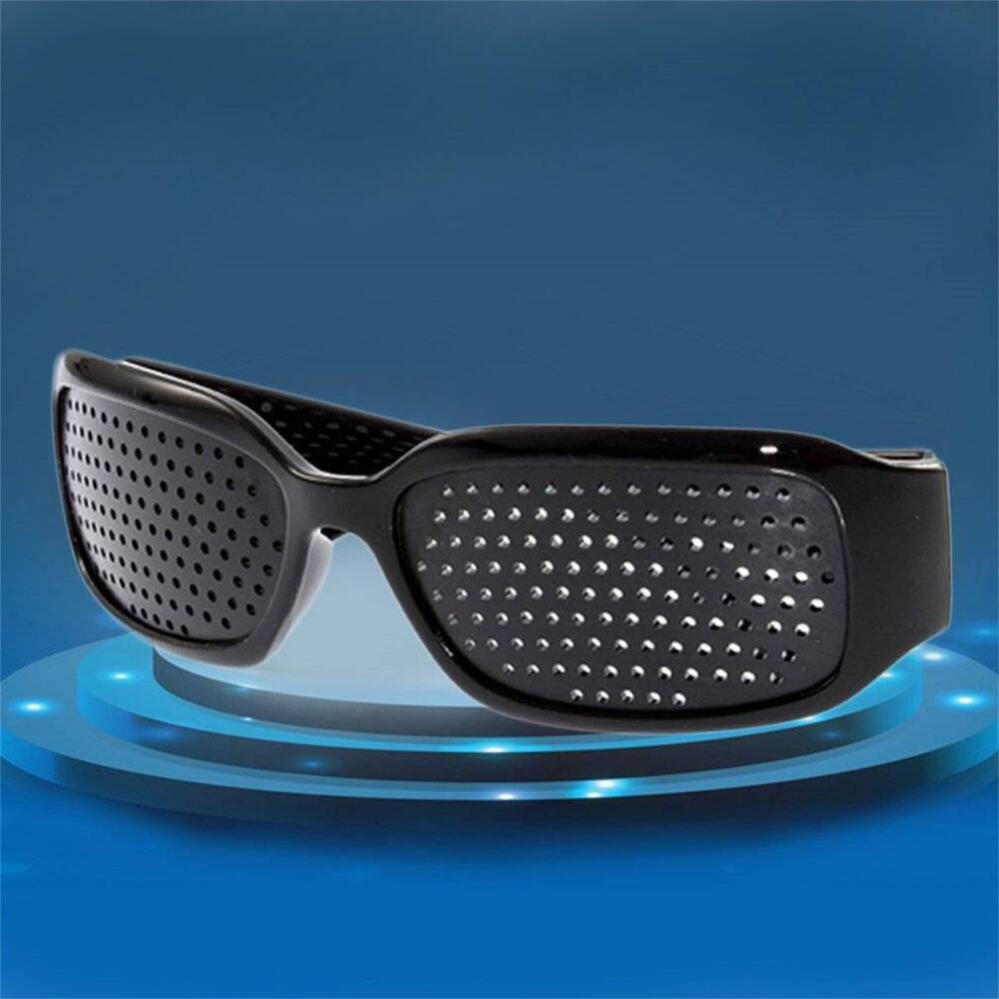
The stark reality of the access divide for corrective vision begs a critical question: how can we bridge the chasm between profound need and limited availability? The answer lies in a blend of innovative market interventions and dedicated efforts by non-profit organizations to ensure affordable vision care reaches those most in need. These solutions are not just about providing glasses with readers; they are about restoring dignity, productivity, and a future to millions.
Non-Profit Organizations for Eye Health: Leading the Charge
At the forefront of this global effort are dedicated non-profit organizations committed to improving eye health worldwide. They are the catalysts, often working where traditional markets have failed, to deliver essential vision solutions.
RestoringVision: Tackling the Global Vision Crisis
One such leader is RestoringVision, a prominent non-profit organization focused intensely on alleviating near-vision loss, particularly the widespread condition of Presbyopia. Their mission is to empower individuals in underserved communities by providing the reading glasses they urgently require. They are directly tackling the global vision crisis by addressing the root causes of limited access, ensuring that simple optical aids are within reach.
Demand Generation and Vision Screening Programs
Solving the vision crisis isn’t just about supply; it’s equally about stimulating demand generation and implementing effective vision screening programs. Many people are simply unaware that their declining visual acuity can be easily corrected, making widespread identification and education crucial.
Community-Based Vision Screening: Reaching the Unseen
To truly reach the unseen, community-based vision screening initiatives are paramount. RestoringVision, for example, collaborates with local NGOs and governmental bodies across dozens of countries, systematically screening populations for Presbyopia. These vision screening programs are designed to be accessible and culturally appropriate, ensuring broad participation. An innovative program in Peru involved setting up vision screening stations at pension check pick-up points, capitalizing on existing community gatherings to identify and assist individuals who might otherwise never seek eye care. This proactive approach is vital for addressing unaddressed vision impairment on a large scale.
Nigeria Case Study: Empowering Healthcare Workers with Reading Glasses
A compelling Nigeria case study perfectly illustrates the ripple effect of providing corrective lenses. In a program aimed at enhancing eye care access, it was discovered that many primary healthcare workers themselves suffered from presbyopia. Their own near vision impairment significantly slowed down the efficiency and accuracy of eye examinations they conducted for others. By providing these dedicated healthcare workers with glasses with readers, the impact was immediate and profound: not only did their personal productivity dramatically improve, but the speed and quality of eye exams for their patients also notably increased. This empowering intervention underscored how fundamental reading glasses are, not just for personal benefit, but for strengthening the very infrastructure of public health. For those navigating the array of optical aids and considering how to secure their own prescription eyewear, exploring modern avenues to purchase prescription glasses online can offer convenience and broader selection.
Building Sustainable Supply Chains and Local Markets
While immediate relief is crucial, the long-term solution lies in building sustainable supply chains and fostering local markets for affordable eyeglasses. The goal is to move beyond dependency towards self-sufficiency.
Market Jump-Starting Initiatives: From Free Access to Self-Sustaining Supply
RestoringVision’s market jump-starting initiatives exemplify this strategic approach. Initially, reading glasses are often distributed for free or at heavily subsidized rates to create awareness and demonstrate the profound impact of corrective vision. The ultimate aim, however, is not perpetual free distribution. Instead, these initiatives are designed to cultivate a local market where glasses with readers eventually become available for future purchases through self-sustaining models. This transition from free access to self-sustaining supply involves educating local entrepreneurs, establishing accessible distribution channels, and building consumer demand to ensure optical aids remain available long after initial interventions.
Economic Empowerment Through Corrective Vision: The Seamstress Success Story
The real-world impact of corrective vision on economic empowerment is powerfully illustrated by individuals like Karaleen Isaiah, a seamstress in Nigeria. Before receiving glasses with readers, her near vision loss made intricate work, such as threading needles, incredibly challenging and time-consuming. This directly limited her productivity and, consequently, her earning potential. After receiving her reading glasses, Karaleen’s ability to perform her craft improved dramatically. She could work faster, with greater accuracy, and take on more complex projects, directly leading to a significant increase in her income. Her seamstress success story is just one of countless examples demonstrating how a simple pair of corrective lenses can transform lives, lifting individuals and families out of poverty and fostering visual independence.
For those seeking to explore a wide range of glasses with readers that combine both practical utility and modern design, enabling clearer near vision for everyday tasks and professional work, glasses with readers offers a comprehensive selection to meet diverse needs.
Beyond Traditional Glasses with Readers: Emerging Alternatives and Future Outlook
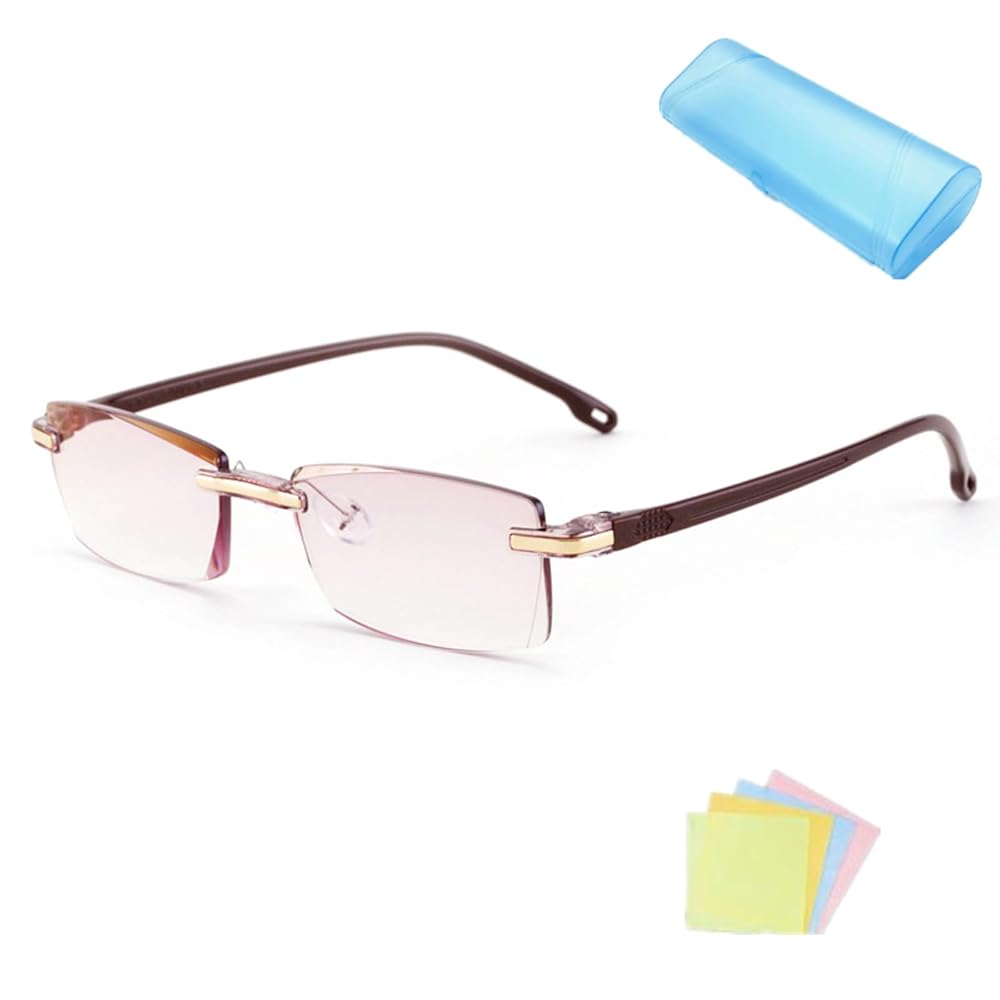
While immediate relief and sustainable supply chains for reading glasses are crucial, the landscape of vision correction is constantly evolving. As we look towards 2025 and beyond, new scientific advancements and diverse optical solutions are emerging, promising even broader visual independence for those affected by presbyopia. These innovations extend beyond conventional corrective lenses, offering individuals more choices in managing near vision impairment.
New Horizons in Presbyopia Treatment
The scientific community continues to explore novel approaches to address presbyopia, aiming to reduce or even eliminate the reliance on traditional reading glasses. These alternative vision solutions represent significant progress in eye health.
Alternatives to Reading Glasses: The Promise of Eye Drops
One exciting development in presbyopia treatment is the advent of specialized eye drops. These topical solutions are designed to temporarily improve near vision by affecting pupil size or the lens’s flexibility. For instance, in 2025, PresVu eye drops, having gained approval in markets like India, aim to reduce the daily need for reading glasses for many individuals experiencing near-vision loss. This innovative approach offers a convenient and non-invasive option, potentially changing how millions manage their declining visual acuity without always reaching for their magnifying glasses.
Types of Reading Glasses and Their Evolution
Even with new alternatives, reading glasses remain a fundamental and widely accessible solution. Understanding how they function and the diverse range available is key to making informed choices for near vision correction.
How Do Reading Glasses Work: Simple Magnification, Profound Impact
At their core, reading glasses are remarkably straightforward optical aids. They are essentially magnifying glasses worn on the face, designed to converge light rays and allow the eye to focus on close-up objects that appear blurry due to presbyopia. Unlike complex prescription eyewear that corrects specific refractive errors, over-the-counter reading glasses typically offer simple, uniform magnification in both lenses. This simplicity makes them easier and more affordable to manufacture and distribute, yet their impact on daily life and productivity for individuals with near vision impairment is nothing short of profound.
Near Vision Impairment Solutions: Diverse Approaches to a Shared Challenge
The journey from basic magnifiers to sophisticated corrective lenses highlights the evolution of near vision impairment solutions. Beyond standard single-vision reading glasses, individuals can choose from bifocals, which offer two distinct viewing areas, or progressive lenses, which provide a seamless transition from distance vision to intermediate and near vision without visible lines. This variety caters to different lifestyle needs and visual requirements. For those exploring the range of modern optical aids, especially concerning stylish eyewear and factors like the progressive glasses cost, understanding these diverse options is crucial. Each type of corrective eyewear offers a unique benefit, ensuring that virtually everyone can find an effective solution for their near vision challenges.
The Path Towards Global Visual Independence
Despite the advancements and variety in vision solutions, the global challenge of uncorrected presbyopia persists. Addressing this public health issue is not merely about providing glasses with readers but fostering sustainable visual independence worldwide.
Eye Health in Low-Income Countries: A Solvable Public Health Issue
The sobering reality is that a lack of access to glasses with readers continues to be a significant barrier to economic empowerment and quality of life, particularly in low-income countries. This isn’t an insurmountable problem; it is a solvable health, social, and economic issue. The widespread nature of presbyopia means that simple, affordable optical aids could unlock immense potential, allowing millions to read, work, and engage fully in their communities. Prioritizing eye health in developing nations is a critical step towards global equity.
Researching Impact: Evidence for Policy Change
To catalyze policy change and secure sustained investment in vision care, robust evidence is indispensable. In 2025, two new randomized controlled trials are underway in India and Kenya, involving a massive cohort of 20,000 participants. These extensive research studies are meticulously collecting data on the economic and quality-of-life impact of providing glasses with readers. By rigorously quantifying how corrective lenses enhance productivity, income, and overall well-being, these trials aim to provide irrefutable proof that addressing near-vision loss is not just a humanitarian imperative but a smart investment in public health and economic development. This evidence will be vital in advocating for affordable vision care as a global priority.
For those seeking to explore a wide range of glasses with readers that combine both practical utility and modern design, enabling clearer near vision for everyday tasks and professional work, modern reading eyewear offers a comprehensive selection to meet diverse needs and help you regain crystal-clear focus.
Redefining Vision Aids: What Are Reading Glasses?
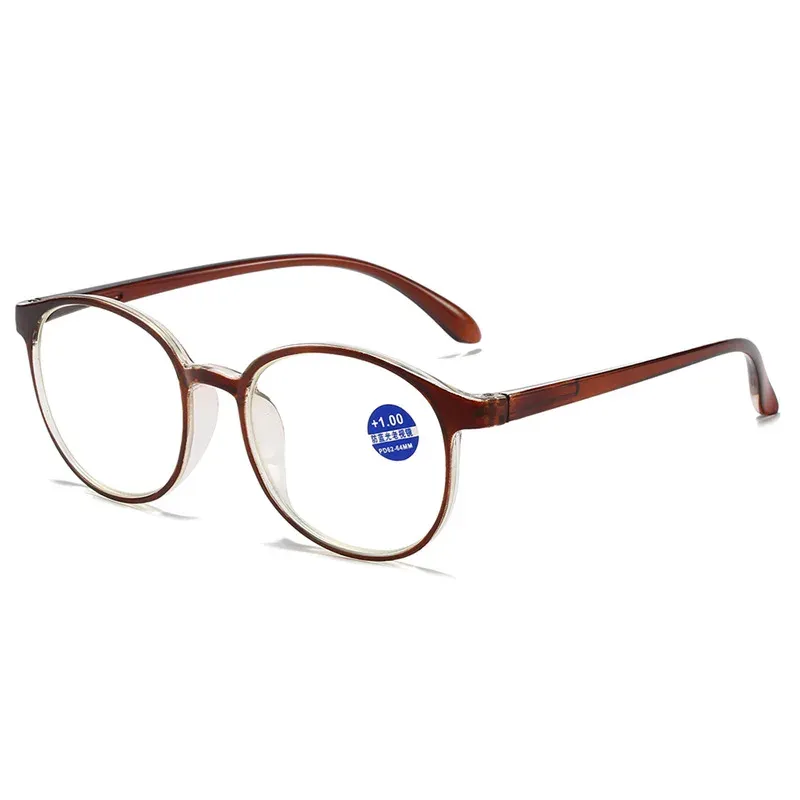
After exploring the evolving landscape of vision correction and the promising alternatives to reading glasses, let’s return to the foundational solution that remains indispensable for millions: reading glasses. Understanding what these optical aids truly are and how they function is crucial for anyone navigating the onset of near vision challenges. These specialized corrective lenses are specifically designed to address a common age-related condition.
Presbyopia Symptoms: The Natural Process of Declining Vision
The inability to focus on close-up objects, a phenomenon known as presbyopia, is a natural and inevitable part of aging for most individuals. It’s not a disease but a gradual stiffening of the eye’s natural lens, which reduces its ability to change shape and focus light correctly on the retina for near vision. This age-related vision loss eventually affects everyone.
The Universality of Presbyopia and Its Impact on Daily Life
Presbyopia typically makes its unwelcome appearance around the age of 40, becoming noticeable as everyday tasks like reading small print, sewing, or working on a computer become increasingly difficult. However, in some regions or for certain individuals, symptoms can emerge even earlier, in their late 30s. This early onset can significantly impact one’s professional life, especially for careers demanding intense near vision – from surgeons and artists to office workers. The challenge of declining visual acuity can disrupt productivity, lead to eye strain, and diminish the quality of life, underscoring the urgent need for effective near vision impairment solutions.
Reading Glasses: A Simple Vision Correction Solution
Enter reading glasses. These optical tools offer a straightforward yet highly effective vision correction solution for presbyopia. They work by providing the additional magnification power needed to compensate for the eye’s reduced focusing ability, making blurry close-up text and objects sharp and clear once more. Unlike complex vision aids that address various refractive errors, reading spectacles primarily serve to amplify near vision, restoring the ability to perform daily tasks with ease and comfort. They are an immediate and accessible answer to age-related farsightedness.
Reading Glasses vs. Prescription Glasses: What’s the Difference?
While both reading glasses and prescription glasses aim to improve vision, they serve distinct purposes and operate on different principles. Understanding this fundamental difference is key to choosing the right corrective eyewear for your specific visual needs. It’s a common point of confusion for many experiencing near vision loss for the first time.
Convenience of Non-Prescription Reading Glasses
One of the most appealing aspects of non-prescription reading glasses is their sheer convenience and accessibility. Often referred to as “cheaters” or “readers,” these over-the-counter optical aids are readily available in a wide range of retail outlets. You can find affordable reading glasses for just a few dollars in 2025 at pharmacies, supermarkets, and convenience stores across the United States. They come in various fixed magnification strengths (e.g., +1.00, +1.50, +2.00 diopters) and can be purchased without an eye examination or a doctor’s script. This ease of acquisition makes them an immediate and practical solution for sudden near vision difficulties.
Personalized Correction with Prescription Glasses
In contrast, prescription glasses offer a highly personalized vision correction tailored to an individual’s unique visual requirements. These corrective lenses are specifically designed to address a broader spectrum of refractive errors, including myopia (nearsightedness), hyperopia (farsightedness beyond presbyopia), astigmatism, and even more complex vision impairments. Obtaining prescription eyewear requires a comprehensive eye examination by an optometrist or ophthalmologist, who will diagnose specific visual deficiencies and provide an exact prescription. This ensures precise vision correction that accounts for differences between each eye and specific optical challenges. For those exploring custom eyewear options, including modern styles like rimless eyeglasses, a prescription is essential to ensure optimal visual performance and comfort. Prescription lenses can also incorporate advanced features like progressive lenses or bifocals for seamless transitions between different focal distances, providing a more comprehensive optical solution for multifaceted visual needs.
For those seeking a wide variety of glasses with readers that cater to both functional needs and diverse aesthetic preferences, offering clearer focus for everything from reading books to using digital screens, stylish reading eyewear provides an extensive collection designed to help you regain perfect clarity for all your near vision tasks.
From Function to Fashion: The Evolution of Reading Glasses
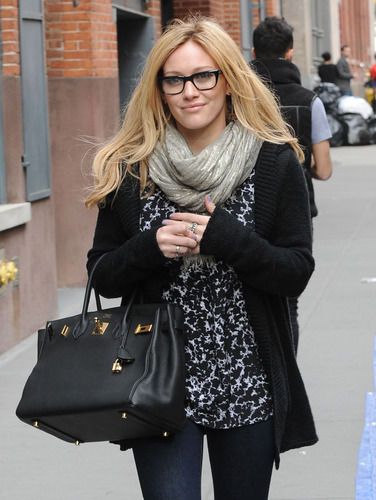
After exploring the foundational aspects of reading glasses and distinguishing them from prescription eyewear, it’s time to shift our focus. Reading glasses are no longer merely functional vision aids for presbyopia; they have undergone a remarkable transformation, evolving into essential fashion statements and trendy accessories. The perception of readers has dramatically changed, embracing style, personality, and even celebrity endorsements.
Eyewear Fashion Trends: Reading Glasses Become a Trendy Accessory
The days when reading glasses were considered purely utilitarian optical tools are long gone. In 2025, they stand proudly at the forefront of eyewear fashion, embraced by style icons and the general public alike. This shift highlights a growing appreciation for chic eyeglasses designs that seamlessly blend utility with personal expression.
Celebrity Effect: Andrew Garfield’s Fashion Statement
A prime example of this sartorial shift was witnessed at the 2025 Golden Globes. Actor Andrew Garfield made headlines not just for his performance, but for his choice of eyewear. He was seen sporting Oliver Peoples Finley Esq. reading glasses, instantly igniting a discussion across social media platforms. His confident embrace of these stylish readers showcased the undeniable charm of chic eyeglasses designs and prompted countless user comments, echoing sentiments like, “Readers are sexy.” This moment cemented the idea that reading spectacles can be a deliberate and attractive part of one’s personal style, transforming near vision aids into desirable accessories.
Celebrity Effect: Oprah’s Signature Choice
Another influential figure who has championed the stylish side of readers is Oprah Winfrey. In 2022, she famously included Peepers reading glasses on her highly anticipated “Favorite Things” list, instantly propelling the brand into the spotlight. Her endorsement underscored the appeal of accessible yet fashionable eyewear. Specifically, the Peepers “Take a Bow” style became a must-have. These reading glasses feature a bold square frame design, available in four versatile color combinations, and retailed at an incredibly accessible price point of just $29. Oprah’s choice proved that fashionable reading glasses don’t need to break the bank to make a significant style statement, offering a blend of affordability and trendsetting appeal in vision correction.
Fashionable Reading Glasses vs. Traditional Readers
The stark contrast between what constitutes “fashionable reading glasses” today and the perception of “traditional readers” or “old-fashioned presbyopia glasses” is monumental. This evolution is driven by brands that prioritize design and quality without sacrificing affordability, making stylish eyewear accessible to everyone who experiences near vision challenges.
Revolutionizing Traditional Impressions: Prive Revaux’s Disruption
At the forefront of this revolution is Prive Revaux. Since its launch in 2017, this brand has fundamentally disrupted the eyewear industry by offering high-quality, fashion-forward, and surprisingly affordable glasses with readers. Founder David Schottenstein has been vocal about their mission: to provide premium materials and features—such as durable acetate frames and robust three-barrel hinges—at a price point typically under $30. This approach has democratized access to designer-inspired reading glasses, challenging the notion that quality optical aids must come with a hefty price tag. For many, this offers a refreshing alternative to the typically higher progressive glasses cost or bespoke prescription lenses, providing excellent value for near vision correction.
Brand and Celebrity Visionaries
The vision behind Prive Revaux was further amplified by its celebrity co-founders: David Schottenstein teamed up with stars Jamie Foxx, Hailee Steinfeld, and Ashley Benson, bringing a powerful blend of business acumen and fashion influence. This collaboration ensured that Prive Revaux glasses were not just well-made, but also inherently stylish and desirable. A testament to their success is seen in figures like Jennifer Lopez, who has been photographed wearing Prive Revaux’s “Alchemist” style. Her choice reinforces that affordable reading glasses can indeed be a sophisticated and integral part of a celebrity’s wardrobe, proving that stylish readers are a global phenomenon. The brand’s commitment to making chic eyewear accessible has profoundly impacted how consumers perceive and purchase glasses with readers.
For those ready to embrace the blend of functionality and fashion in their daily lives, exploring the vast collection of glasses with readers can open up a world of possibilities. Whether you’re seeking a bold statement piece, a subtle accessory, or simply a comfortable pair of readers to enhance your near vision, you’ll find diverse styles that cater to every taste and need, ensuring crystal-clear focus for all your reading and digital tasks. Discover your perfect pair of glasses with readers today and experience the fusion of clear vision and unparalleled style.
Beyond Reading: Functional Eyewear Solutions
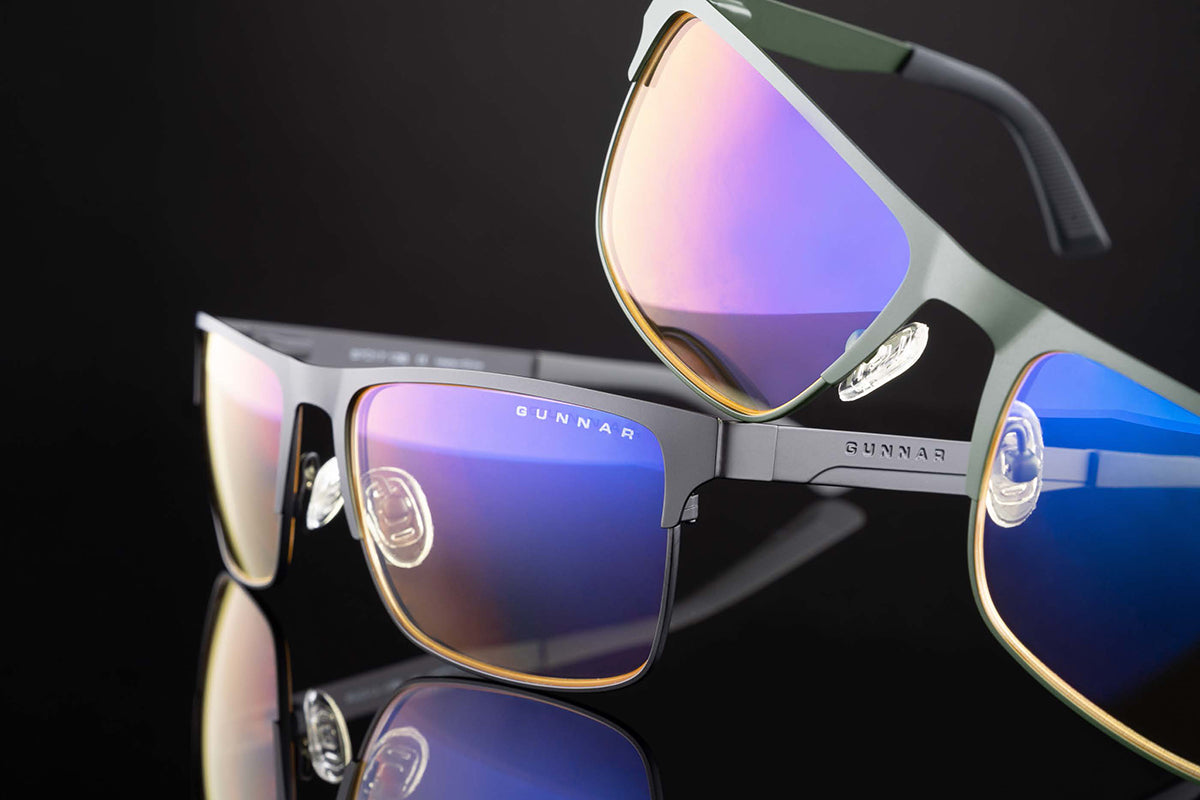
While the previous discussion highlighted the fashion evolution of reading glasses, their utility extends far beyond simple aesthetics. In 2025, modern eyewear solutions are increasingly addressing specific vision challenges posed by our digital lifestyles and ergonomic needs. These advanced functional glasses offer targeted benefits, ensuring optimal eye health and comfort for a wider range of activities.
Combating Digital Eye Strain: Blue Light Blocking Glasses
Our prolonged engagement with digital screens, from smartphones to computers, has given rise to a prevalent issue: digital eye strain, also known as computer vision syndrome. Fortunately, specialized blue light blocking glasses have emerged as a crucial protective measure, mitigating the adverse effects of screen time.
How Blue Light Glasses Help Computer Use
Many contemporary glasses with readers now integrate blue light filtering technology directly into their lenses. For instance, the popular Peepers “Take a Bow” frames, celebrated for their style, also offer this essential feature. These blue light lenses work by selectively blocking or absorbing a portion of the high-energy visible (HEV) blue light emitted by electronic devices. This reduction in blue light exposure can significantly alleviate symptoms of eye fatigue, dryness, headaches, and blurred vision commonly associated with long hours in front of screens. They serve as a vital vision aid for anyone immersed in digital work or leisure.
Choosing the Best Reading Glasses for Digital Eye Strain
When seeking the best reading glasses for digital eye strain, prioritizing models equipped with robust blue light blocking technology is paramount. Beyond simply filtering blue light, top-tier computer reading glasses often provide comprehensive UV protection, such as 100% UVA/UVB defense. Brands like Prive Revaux, known for their fusion of quality and affordability, offer stylish readers that incorporate these critical features. Such protective eyewear ensures that whether you’re navigating spreadsheets or enjoying an e-book, your eyes remain comfortable and shielded from potential long-term damage, maintaining clear near vision even during extended digital sessions.
Innovative Vision: Prism Glasses and Neck Pain Prevention
Beyond digital protection, innovative eyewear also offers solutions for posture-related discomfort and specific vision alignment issues. Two distinct but equally beneficial categories are prism glasses and lazy readers, both designed to enhance comfort and combat physical strain.
What is the Purpose of Prism Glasses?
Prism glasses are a specialized type of optical aid designed to correct vision problems by subtly bending light before it reaches your eyes. This unique capability allows the wearer to perceive objects in a different position without having to physically move their head or eyes as much. According to New York City optometrist Dr. Viola Kanevsky, prismatic lenses are invaluable for addressing conditions such as double vision, chronic eye strain, and certain neurological vision problems by helping the eyes work together more efficiently. They provide a precise form of vision correction that can dramatically improve comfort and clarity for those with specific binocular vision challenges. Just as certain specialized prescription shades can address complex light sensitivity or glare issues, prism lenses offer targeted solutions for intricate visual misalignments. For more on advanced lens technologies, consider exploring how specific prescription shades are engineered for optimal performance and protection.
How Do Lazy Readers Prevent Neck Pain?
A viral TikTok sensation, the Vinmax “lazy readers” (also known as periscope glasses or bedridden glasses), have revolutionized how people approach relaxed reading and viewing. These ingenious reading spectacles allow users to lie completely flat on their backs while reading a book or watching TV, by using strategically placed mirrors to refract the image directly into their line of sight. This innovative design directly addresses the common problem of “tech neck” or cervical strain, which results from prolonged downward head tilting. Users universally praise them, with comments like, “These are a game changer,” highlighting their profound impact on comfort. Many users also appreciate that these hands-free readers can be worn over existing prescription glasses without compromising focus. Priced affordably at around $11, these highly-rated vision aids are particularly beneficial for individuals with cervical spine issues or hand arthritis, offering a comfortable and pain-free way to enjoy literature or entertainment without physical strain.
Whether you’re battling digital eye fatigue, seeking relief from neck pain while enjoying a good book, or simply looking for functional eyewear that complements your lifestyle, the evolving world of glasses with readers offers solutions tailored to diverse needs. Explore the comprehensive range available, combining practical utility with the latest in eyewear fashion. Find your perfect pair of glasses with readers that not only enhance your near vision but also address your unique ergonomic and digital wellness requirements, ensuring clear sight and ultimate comfort.
Buying Guide: How to Choose Suitable Reading Glasses

After exploring the advanced functionalities and specialized eyewear solutions that modern glasses with readers offer, the next crucial step is understanding how to select the right pair for your individual needs. In 2025, with an abundance of options available, making an informed choice about magnification and comfort is key to ensuring optimal near vision and a pleasant experience.
How to Select the Correct Reading Glasses Magnification
Choosing the appropriate magnifying power for your reading glasses is fundamental to avoiding eye strain and achieving clear focus. The goal is to find the lowest diopter strength that allows you to comfortably read standard print at a typical reading distance.
Choosing Based on Age and Vision Needs
The need for reading spectacles typically emerges due to presbyopia, a natural age-related decline in the eye’s ability to focus on close objects. Generally, magnification levels for reading increase with age, though individual vision requirements can vary. Even celebrity users like Oprah, who relies on Peepers reading glasses, can attest to the variety needed. Peepers, a brand renowned for its stylish yet practical designs, offers an impressive range of 10 different magnification strengths, from a subtle +0.00 (no magnification, often used for blue light filtering only) up to a powerful +3.00, catering to diverse vision correction needs. This wide selection underscores the importance of finding your precise magnifying strength.
Optometrist’s Advice and Self-Testing
For the most accurate magnification assessment, consulting a professional optometrist is always recommended. An eye exam can precisely determine your prescription strength and rule out any underlying vision problems. However, for those exploring over-the-counter readers, self-testing can also be effective. Many retailers provide reading charts or sample readers to help you find the most comfortable magnification level. The key is to select a pair that allows you to read clearly and comfortably for extended periods without squinting or experiencing eye fatigue. Look for readers that make text sharp and easy to discern, rather than overly large or blurry.
The Importance of Comfortable Reading Glasses
Beyond just magnification, the physical comfort of your reading glasses is paramount, especially if you plan on prolonged daily use. A well-fitting pair of readers can significantly enhance your overall experience.
Impact of Materials and Design on Daily Use
In 2025, comfortable reading eyewear is defined not just by its lens power but also by its construction and the eyeglass materials used. High-quality materials like lightweight and durable acetate, known for its hypoallergenic properties, contribute to a pleasant wearing experience. Furthermore, eyewear design elements such as sturdy triple-hinge construction provide enhanced flexibility and resilience, preventing common issues like loose arms or breakage. These comfort features are crucial for daily use readers, ensuring they withstand the rigors of everyday life. For instance, exploring specific designs like half lens reading glasses can reveal how innovative forms also prioritize comfort and functionality, offering a unique visual experience that many find less intrusive for tasks requiring both near and distant vision.
The Experience of Daily Wearers
User reviews consistently highlight that for daily use readers, comfort is a non-negotiable factor. Individuals who spend hours reading, working on crafts, or using digital devices often emphasize the necessity of lightweight readers that don’t pinch the nose, cause pressure behind the ears, or slip down the face. As one delighted user noted about their favorite readers, “I forget I’m even wearing them!” This feedback underscores why investing in ergonomic reading glasses with superior comfort features is a wise decision, especially for prolonged wear. The right spectacles should feel like a natural extension of your face, providing clear near vision without being a burden.
Whether you’re an avid reader, a digital professional, or someone simply seeking to make everyday tasks easier, choosing the right glasses with readers involves a blend of correct magnification and unparalleled comfort. To explore a wide array of options that combine style, functionality, and ergonomic design, ensuring you find a pair that perfectly suits your needs and keeps your vision crisp and comfortable, find your perfect pair of glasses with readers today.
Affordability and the Global Vision Crisis with Glasses with Readers
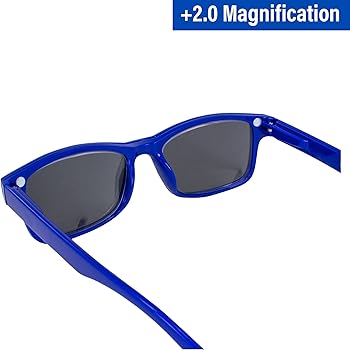
After considering the crucial factors of magnification and comfort for your reading glasses, the journey continues to address another significant aspect: affordability. In 2025, while access to quality eyewear is expanding in some regions, a stark global vision crisis persists, highlighting the immense need for accessible vision correction solutions, especially glasses with readers. Understanding where to find cost-effective options and recognizing the broader societal impact of unaddressed vision impairments is key to appreciating the full scope of eyewear‘s importance.
Where to Find Affordable and Stylish Reading Glasses?
For many, finding reading spectacles that are both budget-friendly and aesthetically pleasing is a priority. The market for glasses with readers has evolved significantly, offering a wide array of options.
Widespread Accessibility of Affordable Eyewear in Developed Countries
In nations like the United States, obtaining affordable eyewear has become remarkably convenient. Consumers can easily find reading glasses at drugstores, supermarkets, and a vast number of online platforms, often at very competitive prices. This widespread availability ensures that near vision correction is not an out-of-reach luxury for the majority. From simple, functional magnifiers to more fashion-forward designs, the range of budget-friendly readers is extensive.
How Brands are Driving Down Costs for Chic Eyeglasses Designs
Several eyewear brands have successfully pioneered models that combine quality with affordability. Prive Revaux, for instance, has gained popularity by offering high-quality spectacles for around $30, making stylish reading glasses accessible to a broader audience. Similarly, Peepers, a brand well-regarded for its diverse range of magnification strengths and contemporary styles, prices many of its readers at just $29. These affordable eyeglasses not only serve a functional purpose but also allow individuals to express their personal style without a significant financial outlay, demonstrating that chic eyeglasses designs do not have to come with a hefty price tag. For those interested in exploring different eyeglass types that combine style with enhanced functionality for various lighting conditions, such as self-adjusting lenses, you might find valuable insights into advanced eyewear technology in an article discussing transition reading glasses.
Unaddressed Global Vision Problems
Despite advancements in eyewear accessibility in some regions, a critical global vision crisis continues to affect millions worldwide. The lack of basic vision correction, particularly for presbyopia, has profound societal and economic consequences.
Alarming Statistics: The Global Vision Crisis
According to a sobering report by The Lancet Global Health Commission, an astonishing 510 million people across the globe suffer from unaddressed vision impairments that could be readily corrected with simple reading glasses. This staggering figure underscores a massive unmet need for corrective lenses. Pelin Munis, CEO of RestoringVision, a non-profit dedicated to solving this problem, highlights the dire economic impact, stating that the annual economic loss due to vision impairment and the sheer lack of eyewear amounts to a staggering $410 billion. This vision deficit prevents individuals from participating fully in their communities and economies.
Economic Barriers and Regulatory Challenges to Affordable Reading Glasses
The primary barrier to accessing reading glasses in many low-income and middle-income countries is often the prohibitive cost. For example, in a certain region of Mexico, a single pair of prescription glasses can cost $20, a significant sum when the average monthly wage is approximately $280. This disproportionate cost makes vision correction an unattainable luxury for many. Furthermore, a peculiar challenge arises from certain countries classifying spectacles as luxury items and imposing high tariffs on them. This regulatory hurdle further exacerbates the difficulty of acquiring affordable readers and essential eyewear for those who need them most.
Market Intervention and Vision Correction Solutions
Recognizing the immense scale of this global vision problem, various interventions and innovative solutions are being implemented to expand access to glasses with readers and improve visual acuity worldwide.
Demand Generation and Supply Channel Development for Presbyopia Symptoms
Non-profit organizations like RestoringVision play a pivotal role in addressing this vision crisis. They actively collaborate with local non-governmental organizations and governments to conduct presbyopia symptoms screening programs within communities. These initiatives not only identify individuals in need of reading glasses but also generate crucial demand for vision correction. An innovative program in Peru exemplifies this approach, allowing people to undergo eye screening when they collect their pensions, providing them with free or low-cost eyeglass acquisition on the spot. This integrated approach simplifies access to corrective eyewear.
Empowering Communities and Economic Growth through Reading Glasses
The impact of providing Reading Glasses extends far beyond individual vision improvement; it significantly boosts community empowerment and economic growth. A compelling case study from Nigeria demonstrates that equipping primary healthcare workers with Reading Glasses dramatically increases their efficiency in conducting eye screenings and delivering patient vision services. The economic benefits are particularly striking: providing reading glasses can elevate employee productivity by up to 32%. A powerful real-world example is Karaleen Isaiah, a seamstress whose livelihood depended on her near vision. With new spectacles, she was able to thread needles again, significantly improving her income and overall well-being. This illustrates that solving the global vision crisis is not merely a health and social issue but a fundamental component of economic development, driving the widespread adoption of vision correction solutions and empowering individuals to contribute more fully to their societies. To explore a comprehensive range of glasses with readers that cater to diverse needs and budgets, providing clear vision and enhancing daily productivity for everyone, find your ideal glasses with readers today.
Empowering Your Vision: The Future of Eyewear Clarity
As we’ve explored, the journey of glasses with readers has evolved from a simple necessity into a sophisticated solution for managing presbyopia, the universal age-related near vision loss. This comprehensive guide has illuminated why these specialized optical aids are crucial, detailing everything from understanding the condition itself—that familiar “arms too short” phenomenon—to decoding the various types of readers available, including single-vision, multifocal, and blue light filtering options that combat digital eye strain. We’ve emphasized the critical importance of selecting the correct magnification strength, measured in diopters, and highlighted how professional eye care or self-testing can guide you to your perfect pair. Beyond individual needs, we’ve shed light on the staggering global vision crisis, where millions suffer from unaddressed presbyopia, leading to significant economic and social burdens. However, amidst these challenges, innovative solutions are emerging. Non-profit organizations like RestoringVision are spearheading initiatives to build sustainable supply chains and implement widespread vision screening programs, bridging the access divide in low-income countries. The evolution of readers from purely functional aids to stylish fashion statements, championed by brands and celebrities alike, further underscores their growing relevance. Looking ahead, advancements like vision-correcting eye drops and specialized eyewear such as prism and ‘lazy readers’ promise even greater visual independence. Ultimately, whether through traditional glasses with readers, cutting-edge alternatives, or even essential sunglasses with prescription for outdoor clarity, achieving clear, comfortable vision remains paramount. It’s not just about correcting sight; it’s about restoring dignity, enhancing productivity, and ensuring a richer quality of life for everyone.

Leave a Reply